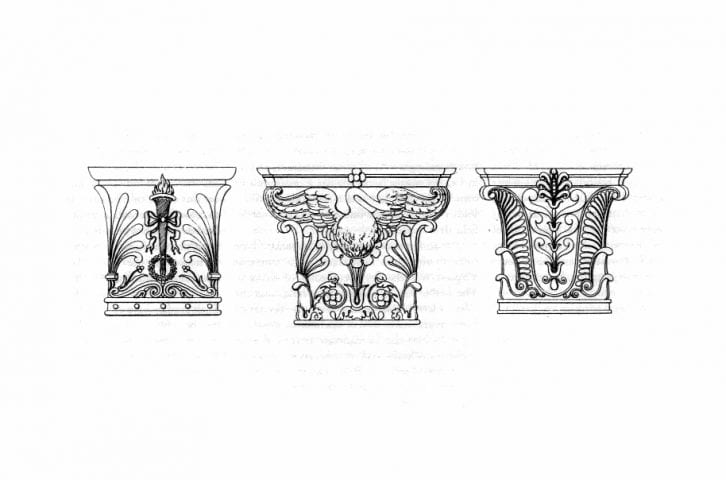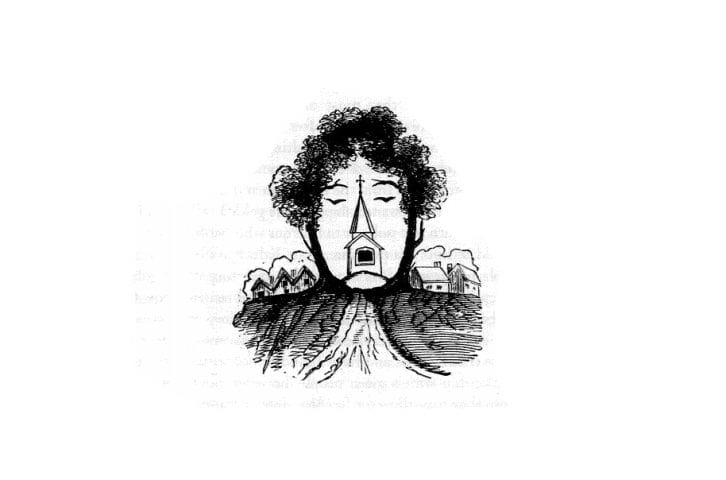Books Reviewed
Early in this book, Fareed Zakaria, foreign affairs columnist and editor of Newsweek International, tells the following story. A senior member of the new Kazak parliament said that “we want our parliament to be just like your Congress.” The American scholar with whom he was speaking recoiled in horror. “This view is not unusual,” Zakaria laments. Since Woodrow Wilson’s day, most American political scientists have criticized the “undemocratic” elements of the U.S. Constitution. Perhaps Zakaria’s book is a sign that the progressives’ dominance of the American academy is coming to an end. If many people accept his contention that democracy is not always liberal, this might well be the case.
In the classic manner, Zakaria begins with definitions. Rather than regarding democracy as an end in itself, or as a set of values that we pursue, he portrays it as a means to certain political ends. “From the time of Herodotus,” he writes, democracy “has been defined, first and foremost, as the rule of the people.” Zakaria distinguishes democracy from “constitutional liberalism,” which “is not about the procedures for selecting government but, rather government’s goals. It…seeks to protect an individual’s autonomy and dignity against coercion, whatever the source—state, church, or society.”
After introducing his subject, Zakaria turns to “A Brief History of Human Liberty.” The history he provides is refreshingly whiggish, if simplistic. His story begins with Emperor Constantine’s decision to move the seat of the Roman Empire to Constantinople. (Zakaria notes that “Greece was not the birthplace of liberty as we understand it today. Liberty in the modern world is first and foremost the freedom of the individual from arbitrary authority.” On the other hand, he thinks we underestimate the Roman roots of liberty, particularly in the realms of law and government.) By separating the loci of temporal and spiritual power in the Empire, Constantine began the story that culminated in the separation of church and state. In addition, it let the Church assert that certain standards of right applied to rulers as well as the common man. According to Zakaria, liberty evolved as the result of a series of struggles for power: between pope and emperor, between the Church and emerging states, kings and lords, Protestants and Catholics. In these struggles, rival elites could play one power off the other, thereby securing liberty for themselves and ultimately for others. The struggle to secure liberty under law was particularly successful in Britain and the British colonies that became the United States.
Although Zakaria’s history of liberal democracy’s evolution in Britain and America is oversimplified, his general point is well taken: Britons and Americans were free from arbitrary government and possessed the rights to use, hold, and transfer their property before they had the right to vote. A people must learn to observe the law out of fear of punishment and regard for its utility before it will learn to respect law because it is (as a rule) just to do so. Zakaria observes that almost every effort to establish democracy in advance of the rule of law has failed. It failed in 19th-century France and in Germany until World War II. Similarly it has failed in much of the rest of the world in the 20th century. “Illiberal democracy has not proved to be an effective path to liberal democracy.”
In response to the myth that democratic nations tend not to make war upon each other, Zakaria points to many counter-examples. Hitler was a popular leader. In Africa today, elections often harden ethnic rivalries and lead to war. Something similar, Zakaria fears, is happening in his native India. Yet liberal democracies do tend to be peaceful. “Democratic peace,” he points out, “is actually the liberal peace.” If so, how can liberal democracies be created? The process took many bloody centuries in the West. Why should it be different anywhere else? Zakaria notes that lately it has not always taken so long, or been quite so bloody. “Over the past fifty years almost every success story in the developing world has taken place under a liberal authoritarian regime.” By way of example, he points to Chile, Taiwan, South Korea, and Indonesia. He hopes that China is on the glide-path to liberal democracy. At the same time, he worries that Russia’s elected dictator is becoming a simple despot. An authoritarian ruler may help establish the rule of law; there is no guarantee that he will.
Zakaria stresses the importance of economic factors in the creation of liberal states. Wealthier countries have more luck with democracy. Throughout the book, Zakaria leans rather too heavily on a study showing that countries need a gross-domestic product of roughly $3,000 to $6,000 per person to democratize successfully. As a rule, countries grow rich when their citizens grow rich, and secure property rights under law are a prerequisite for the development of widespread personal riches. In other words, the governors need to allow the market to function in order to make themselves powerful. They may not rule arbitrarily if they wish their state to prosper and be strong. Rulers who wish to be powerful in the modern age need to enact policies that help to create a stable middle class.
The great exception to the rule that riches correlate with stability and liberalism is the Arabs. Because of their oil wealth, or perhaps because of overly generous foreign aid packages, many Arab rulers don’t have to treat their citizens well. These “trust fund states,” as Zakaria calls them, are run according to the whims of one or a few rulers. This has bad consequences because all politics is local, including “the politics of rage.” To divert anger from themselves, Arab rulers encourage and indeed subsidize anger against Israel and the United States. The smart dissenters realize this, but they also realize that the U.S. helps keep the local oligarchies in power. As a result, the Arab lands have a pool of talented up-and-comers for whom the only choice is to submit or to act up. America has suffered the indignation of those who chose the latter course. The challenge is to open up Arab societies to allow men and women to advance economically and socially, without opening up the electoral system to Hamas and other similarly illiberal groups. Before the Arab world will be safe for democracy, it needs to enjoy the rule of law.
To make these claims, Zakaria must show that Islam is not irreconcilable with liberal democracy. Because Islam is fundamentally about law, he notes, it provides a foundation upon which to build a regime under the rule of law. In addition, Zakaria sees a certain similarity between Islam and Protestant Christianity. Like Protestantism, he says, Islam has no final spiritual authority. In theory, any individual may interpret the Koran for himself. Zakaria may be correct, but it might be that Zakaria’s understanding of Islam is too Christian. It might be that a liberalism growing out of a religion that hopes for a universal set of laws to govern is very different than the liberalism that has grown out of a religion that hopes for a universal belief.
Zakaria gives us hard-headed, deep thinking, but one wonders whether it is hard-headed and deep enough. Has he thought through the relationship of democracy to liberty? As he notes in the case of Russia, dictators are unlikely democrats. Moreover, the wimpy language of individual autonomy and dignity that he uses to define liberal constitutionalism reflects a certain softness of thought. The language is not that of the American Founders: the noble principle that men are born free and equal, and that government should, to the degree possible, help men secure their liberty. For the founders, republican government was both a means to individual freedom and the highest expression of it, hence an end in itself. In the best—though not, alas, in every case—republican and free government would coincide.
To help democracies form and endure, Zakaria notes, they need moderation. Such moderation requires two or three things: a set of institutions that refine and stabilize public opinion, and a class of people who undertake this task. Moderation might also require a fixed idea, perhaps the noble idea of human equality and self-government, to enable statesmen to triage their tasks. Zakaria makes this point most clearly in his discussion of the United States. He praises the undemocratic or less majoritarian elements in American government—unequal representation in the Senate, the unelected authority of the Supreme Court, and the various limitations on government action that go under the name of “rights.” These have helped the U.S. achieve a remarkable degree of stability.
At the same time, Zakaria fears these checks are “wearing thin” and that America is suffering from an excess of democracy, noting, “the twentieth century was marked by two broad trends: the regulation of capitalism and the deregulation of democracy.” His discussion focuses on the latter. Thanks to the rise of statewide initiatives and referenda, Americans vote on more and more issues. Because these initiatives are presented in isolation, they ignore the necessity of political trade-offs. In business, the old-boys clubs have been broken up. More and more Americans own stock. These and other changes have made it easier for talented men to rise in America, and he thinks that’s a good thing. “Few people pine for the good old days when Rutherford B. Hayes or Millard Fillmore was president.” Yet Zakaria is concerned that America’s elites—and all societies will have elites—no longer understand their responsibilities, and will fail to moderate the demands of the masses.
Zakaria sees the problem clearly, but he doesn’t think through it sufficiently. Hence, his favored solution to America’s political ills is simplistic. In general, he likes schemes in which experts make recommendations to politicians who may vote yes or no, but may not amend, as was done with the military base-closing commission of the 1990s. That worked, he says, because Congress realized that “the only way to arrive at a fair outcome was to take politics out of the process.” Rather than the messiness of self-government, in which the people and their representatives form the centerpiece, he prefers arrangements in which “the legislature exercises ultimate control but leaves much of the policy to unelected bureaucrats. If it works for welfare policy, why not for taxes?” Zakaria forgets that politicians, not bureaucrats, reformed welfare the 1990s, against the wishes of the welfare establishment. The trouble, of course, goes deeper: we have yet to reconcile administrative bureaucracy with our constitutional system. Part of the reason why initiatives have grown so popular is that they are ways around unelected and unresponsive administrative bureaucracies.
Ultimately, Zakaria is not quite comfortable with the elitism that he defends, either at home or abroad. He notes that “politics is healthy,” that in recent history “democratizing states went to war significantly more often than either stable autocracies or liberal democracies,” and that the rise of liberal democracy in the West was hardly peaceful. At the same time, he often seems to regard the chaos and bloodshed of young democracies as completely avoidable. Similarly, he quotes Clinton Rossiter’s formula (twice!): “no America without democracy, no democracy without politics, no politics without parties.” Yet he complains about the tenor of contemporary partisanship in the U.S. and is profoundly uncomfortable with our untidy political life. He never discusses how to distinguish the fruitful chaos of regular democratic life, or of life in a democratizing land, from more fundamental chaos that threatens the democratic order. More than anything else, our leaders need lessons in that art, which requires knowing what is and is not essential to republican government. One hopes that Zakaria’s very smart book will spur thinking in that direction.





